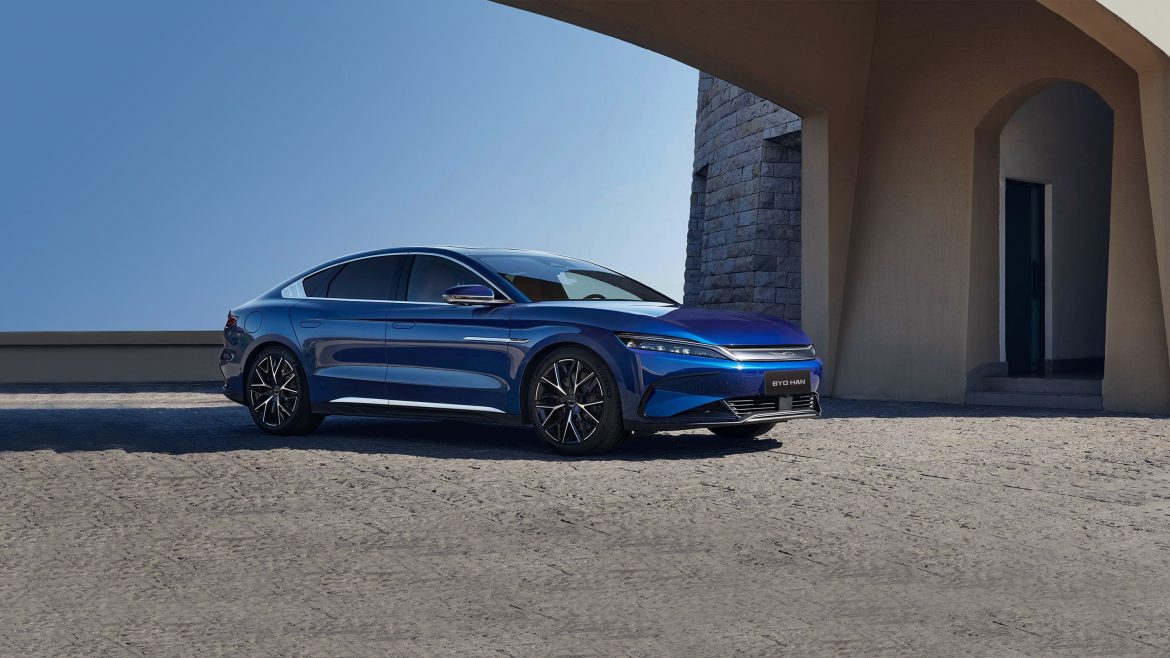The European Union (EU) has unveiled a proposal to defer the implementation of stringent rules, originally set to trigger import tariffs on electric vehicles (EVs) traded with Britain from next year. This move comes as both Britain and the EU grapple with challenges in the electric vehicle sector, and the EU aims to fortify its battery manufacturing industry.
Extension of transition period
The European Commission has recommended a three-year extension to the first transition period outlined in the post-Brexit Trade and Cooperation Agreement (TCA). Originally set to conclude in 2024, this transition period allows EVs to have 40% local content and battery packs and components 30%. The proposed extension pushes the deadline to 2027, aligning with the complete implementation of local content requirements under the TCA.
Local content requirements
The TCA stipulates that for EVs to qualify for zero tariffs, at least 55% of their value must originate from the EU or Britain. For battery cells and modules, the threshold is 65%, and for battery packs, it is 70%. The proposed extension aims to give manufacturers more time to meet these requirements without facing import tariffs of 10%.
Struggles in EU battery production
European Commission Vice President Maros Sefcovic pointed to external factors such as Russia’s invasion of Ukraine, escalating energy prices, and competitive support schemes that have hindered the EU’s efforts to scale up battery production. As a significant portion of car batteries, ranging from 30-40% of a vehicle’s value, comes from China, meeting the TCA’s stringent content requirements posed a challenge for many automakers.
Relief for European automakers
The European Automotive Manufacturers’ Association (ACEA) welcomed the proposal, expressing relief as the original application of the TCA in 2024 could have incurred tariffs costing EU vehicle makers an estimated 4.3 billion euros. The extension provides a reprieve for the industry, particularly given the disruptions caused by external geopolitical events and supply chain constraints.
Global competition and tariff impact
The proposed delay acknowledges the global dynamics of the electric vehicle market, with concerns that imposing tariffs could potentially aid non-European competitors. Many automakers argued that the tariffs would primarily benefit Chinese manufacturers, whose exports to Europe have been on the rise. This consideration reflects a strategic move to balance global competition without compromising the growth of the European electric vehicle sector.
Northvolt’s perspective
Swedish battery producer Northvolt sees the proposed extension as a “strong, strategic move” that could enhance Europe’s competitiveness in developing more sustainable and circular batteries. With a focus on reducing reliance on Chinese battery imports, the EU aims to foster a robust battery manufacturing industry within its borders.
Industry and political backing
The proposal is set to undergo scrutiny from EU member countries, with indications that most are likely to support the extension. Once approved internally, the proposal will then be presented to Britain, which has also expressed support for delaying the implementation of tariffs on electric vehicles.
Navigating global challenges
In a landscape marked by geopolitical tensions, supply chain disruptions, and the pursuit of sustainable technology, the EU’s decision to extend the transition period for EV tariffs reflects a pragmatic approach. By considering the broader challenges faced by the automotive industry, the EU aims to balance the need for local content requirements with the global competitiveness of its electric vehicle market.



